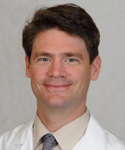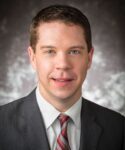One of the ACR’s most powerful assets is its members, including those who bring their expertise, experiences and varied opinions to its volunteer committees. This year, the ACR is seeking new voices to add to the committees and is sending a special invitation to community rheumatologists, whose perspectives about current practices, policies and challenges will help shape the direction of the ACR and the field of rheumatology for years to come.
The Rheumatologist spoke with six community rheumatologists about why they volunteer on ACR committees and what that service has meant to them, professionally and personally:
- Sean Fahey, MD, Piedmont Healthcare, Mooresville, N.C.
—current: ACR Board of Directors
—past: Government Affairs Committee (GAC), Committee on Rheumatologic Care (CORC) and its Insurance Subcommittee (ISC) - Kwas Huston, MD, Kansas City Physician Partners and clinical associate professor of medicine at the University of Missouri, Columbia
—current: ACR Board of Directors
—past: CORC, GAC - Chris Phillips, MD, Paducah Rheumatology, Paducah, Ky.
—current: ISC
—past: COVID-19 Practice & Advocacy Task Force, CORC, CORC liaison to GAC - Virginia Reddy, MD, Rheumatology Associates, Dallas, Texas
—current: Registries & Health Information Technology (RHIT) committee
—past: COVID-19 Practice & Advocacy Task Force, CORC - Marcus Snow, MD, University of Nebraska Medical Center, Omaha
—current: CORC - Angus Worthing, MD, FACP, FACR, Arthritis & Rheumatism Associates, PC, Washington, D.C.
—current: ACR Board of Directors, Board liaison to the Committee on Education, ACR Governance Task Force
—past: CORC, GAC, Affiliate Society Council, Strategic Planning Task Force, MACRA Task Force
The Rheumatologist (TR): ACR members consistently report that volunteering on a committee has been rewarding in many ways. How has your committee work proved beneficial on a professional level?

Dr. Worthing
Dr. Worthing: Professionally, my ACR volunteering has helped me improve my medical practice in many ways. As a CORC volunteer, I learned what was going on with new treatments and practice management. ACR volunteering has also taught me a host of leadership skills and tools that I use almost every day as a partner and member of my group’s executive committee. I am extremely grateful for all that.
Dr. Fahey: Volunteering ensures I have access to the best information to run my practice. I have picked up so many helpful hints interacting with fellow volunteer leaders.

Dr. Snow
Dr. Snow: Professionally, it is a great way to network and collaborate with others you would have never met or otherwise gotten to know. The formal exchange of ideas and the informal discussions that occur during the meetings—and afterward—is something I never considered but really have grown to appreciate.

